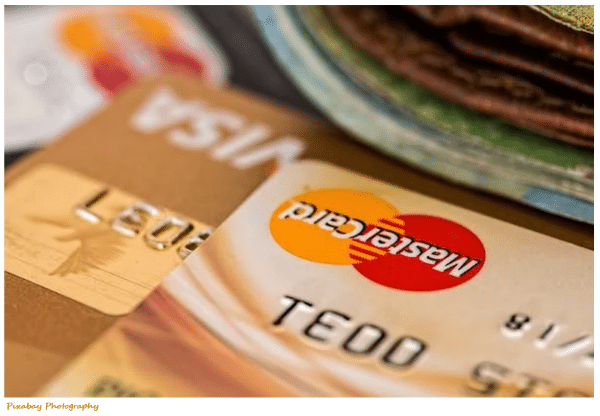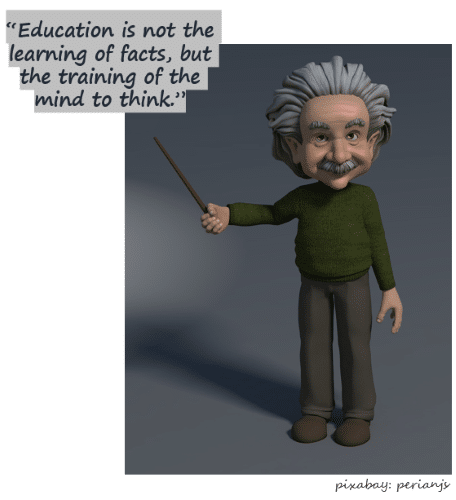Mentoring activities that include exposure to life skills both maximize time and help mentees develop necessary business skills. Mentors and mentees may be surprised to discover how valuable life skills practice is and how easy it is to use them in conjunction with developing business skills. Help mentees prepare for business and independent life with these 13 clever mentoring program suggestions!

When we think mentorship, we think business. Life skills seem like chores. Often they ARE chores, and we want them completed in a hurry!
However, using life skills to achieve mentorship objectives is brilliant! Prepare yourself for life after being a kid.
When the going gets tough, you will be ready. Practicing skills that help at home while also supporting your business results in a creative, balanced, well-rounded person, who can manage what’s going on personally and professionally.
The time invested absolutely pays off for entrepreneurs wearing every hat for their business, and for students who will graduate, live on their own, and wear every household hat.
Life skills make great mentoring activities!
Benefits include:
- Maximizes limited time
- Supports remote learning
- Minimizes travel expenses
- Encourages creative solutions
- Delivers unexpected learnings – and Fun!
It makes sense. And cents.
Life skills activities provide the same growth and learnings gained from traditional mentorship program activities such as shadowing your mentor, strategic reading, role playing, attending business reviews, planning meetings, attending conferences, and gaining practice with those already on the job.
It’s your mentorship, and you have options. Use them!
What’s your schedule like? Kinda crazy? Always busy? Juggling?
Time management will only become more critical for you. Don’t stress over it in advance. Just learn to create balance and build your self-confidence. Like I said, you have options. Your goals are achievable when you work together, share ideas, and improve the process.
Effective planning is key to your mentorship success. Consider what’s behind your objectives and use your mentor as a guide. Your mentorship is a big opportunity to step up your game.
Your first mentoring session is important. Use that initial conversation to build your mentoring relationship. Get to know your mentor and build immediate trust by asking lots of questions and answering questions.
Before diving in, consider metacognition, and be sure you are intrinsically motivated! Then take what you need from these suggestions and make your mentorship work for you.
Be open to suggestions. Try something new. If it’s too easy, add in purposeful additional challenge & step up your game.
Get out of your comfort zone.
Prepare yourself for work and life. After all, your future goal is ‘work to live, not live to work!’

Take your mentor’s advice!
Activity 1: Grocery shopping 101 (Basic!)
Learn your way around the store, while learning to avoid strategically placed impulse purchases. Learn to wait your turn, to help others, and the value of a budget. Out of stocks will move from frustration, to changing up your plans and making substitutions.
- How: Shop once a week for 2 months, planning meals, considering all food groups and household needs, and then creating a shopping list
- Skills gained/Traits developed: planning, budgeting, decision making, embracing change, courtesy
Activity 2: Grocery shopping 102 (Advanced!)
Plan wisely for weeks when you need cleaning supplies and paper products! They use up a good portion of your budget. Understand value and how to maximize your budget long term. For example: learn when buying a 2-pack makes sense.
- How: Use the 101 process + add a strict but reasonable budget. Plan meals around sales and seasonal availability vs. desire and convenience. At the store, consider the price per pound to get the most reasonable value for your personal needs. Hint – it’s not always the largest size.
- Skills gained/Traits developed: problem solving, comprehension, budgeting, basic accounting
Activity 3: Open a FREE checking account and track your spending.
Learn the instances where we still need to write a check; understand the value of the check register and your online statement.
- How: Choose a bank after comparing services, locations, and banking fees. Open your account, pay weekly attention to spending for 6 months, eliminating any atm fees and other unnecessary fees, and develop fiscally responsible habits.
- Skills gained/Traits developed: cash flow basics, profitability, value of a dollar, budgeting, self-control, basic accounting

Activity 4: Track 6 months of credit card expenditures.
- How: Download 3 months of prior statements and track them for an additional 3 months. Review categories, wise decisions, over-spending, and timeliness. Ensure you are not spending what you do not have and are paying the bill absolutely on time. If you have time, actually dig into the fine print and understand how interest is charged, why and exactly when. Try to incur $0 interest – always.
- Skills gained/Traits developed: monetary responsibility, organization, managing to a budget, interest calculations, self-control, timeliness, risk and reward, responsibility
Seek professional advice!
Activity 5: Review your past 3 years of taxes and prepare for this coming year.
Understand the process, including the forms and preplanning. Preplan for this coming year. Understand basics of business accounting and itemization.
- How: View your past 3 years of returns. Focus on what form(s) were used and why. Look up what will be necessary to track and file for your business and what deductions you can maximize once opening a business.
- Skills gained/Traits developed: organization, planning, taxation basics, fiscal responsibility, managing to a budget, basic accounting
Partner with organizations and become a resource.
Activity 6: Help organize a charitable event.
Select your event and the level of commitment and time. The idea is to help and learn, not create stress.
- How: Chose an event, and follow through on your commitment.
- Skills gained/Traits developed: leadership, planning, organization, sales, marketing, customer service, monetary management, budgeting
Activity 7: Volunteer at an animal shelter.
Taking care of animals at a shelter is so much more than walking a dog or playing with kittens. It involves cleaning kennels, scrubbing feline living areas, managing strong odors & noise, feeding on schedule, and managing coverage & documentation.
- How: Volunteer weekly for 3 months. If helping with administration, do the cleaning and actual physical work too. Commit. Get on the schedule. Show up. Work hard. Do not take the easy way out.
- Skills gained/Traits developed: communication, networking, value of arduous work, ethics, humility, cleanliness, economic use of supplies

Connect and boost morale in your community.
Activity 8: Read to kids at a library.
- How: Call a library or elementary school and get on their calendar. Schedule 4 opportunities to read.
- Skills gained/Traits developed: communication, networking, patience, humility, presentation skills, reading to an audience, the ability to connect with others
Make your health (and ability to save!) a prime topic for learning.
Activity 9: Track your food & liquid intake + movement.
Raise your awareness, view trends, and understand how choices affect your health, ability to focus, and monthly budgets.
- How: Track every bite, every sip, and your movement in an inexpensive notebook for 2 months. Evaluate choices, timing, and trends.
- Skills gained/Traits developed: mindfulness, follow through on commitment, the compound effect, analytics
Activity 10: Meal planning
Anyone with money can have a box shipped, assemble it, and create the serving. Planning and making it for yourself night after night or planning holiday dinners is a different story. Understand the costs – of inflation, stores without sales, and whether name brands on sale are more cost efficient than stores with no sales but claiming lower everyday prices. Evaluate the cost to get there vs. delivery or buying premade? Shipping vs. gas. Your time vs. your time shopping. Make these decisions.
- How: For 2 months, on a weekly basis, plan out the week. No buying out. Plan it all, pack it all. All meals. All beverages. All snacks.
- Skills gained/Traits developed: planning, strategy, self-control, decision making, diligence

A hearty mentoring program discussion can be built around this next activity!
Activity 11: Use a laundromat.
Experience bringing all of your laundry to and from. Wait times. Having clothes that are damp after multiple drying cycles then not having enough quarters to dry them even more. Potentially dirty machines. Determining if making multiple trips or doing multiple loads at one time is easier for you.
- How: Do your laundry at a laundromat 3 times. Sit and wait from beginning to end. Observe all.
- Skills gained/Traits developed: patience, planning, etiquette, observation
Activity 12: Shop for insurance (car, health, apartment, homeowners, or life)
- How: No need to buy – this is an exercise. Compare 5 companies, understand tiers, costs, benefits, hidden fees, what is covered, what’s NOT covered, when it’s a benefit, and when they drop you. Understand your actual out of pocket cost and if your rates would increase if you made a claim.
- Skills gained/Traits developed: understand contracts and fine print, value, listening skills, what’s said and left unsaid, price comparisons, basics of accounting, finance, sales, & marketing
This idea will help more than you may realize.
Activity 13: Live smaller. Save $.
There’s no better time to learn this. LEARN is the key word. Saving little bits here and there adds up to substantial savings over the course of a year. You need to think this way to survive the lean years and get over hurdles. Do not listen to those that say “no one saves in their 20’s.” Those that do are the wealthy ones later on. Every dollar you put into making it yourself adds up and compounds. Do not be shortsighted.
- How: Review all you do. Where do you trade convenience for value? Where can you save? Focus on you. More real food. Fewer subscriptions. Walking and running vs. a gym or class membership. Define “need.” Understand what is necessary vs. what you want, and the benefit of savings that add up and compound. This thinking is what will get you where you actually want to go.
- Skills gained/Traits developed: planning, budgeting, nice vs. necessary, understanding of value, and the value of time vs. convenience
Mentorship programs incorporating life skills activities, inspire, promote, and support all characteristics of successful business leaders. Your mentor can come along or follow up virtually.
Incorporating life skills into your mentorship plan is a great way to develop skills, emotional intelligence, and a deeper understanding of yourself. You’ll develop new insights and create experiences you may not have realized involve goal setting, professionalism, interpersonal skills and determining the most effective ways to balance time and money. These activities will have a positive outcome and can only benefit you, your positive mental health, and overall self-confidence.
In this case, it’s not just me saying “you got this,” it’s YOU knowing for sure that YOU GOT THIS.

0 Comments